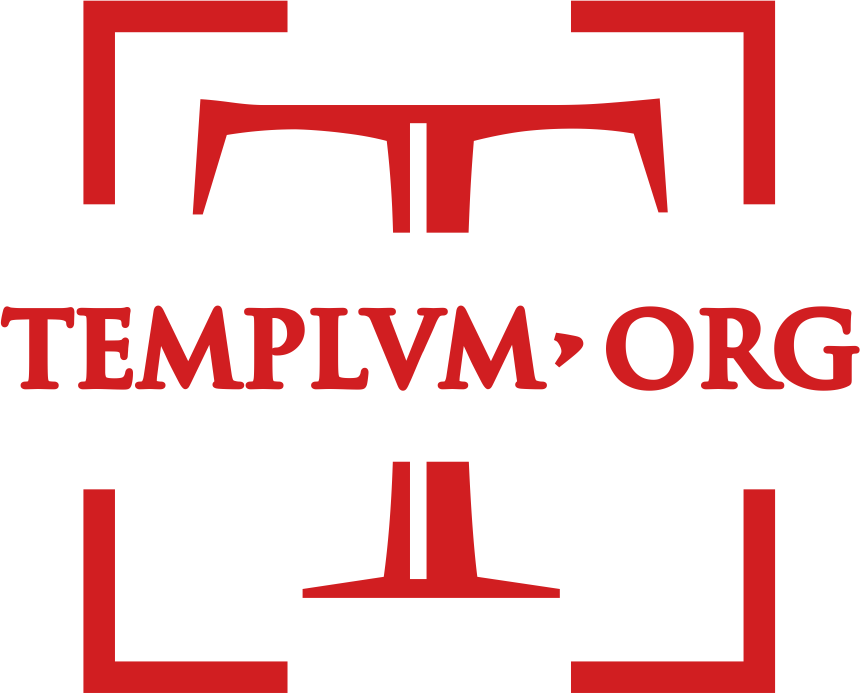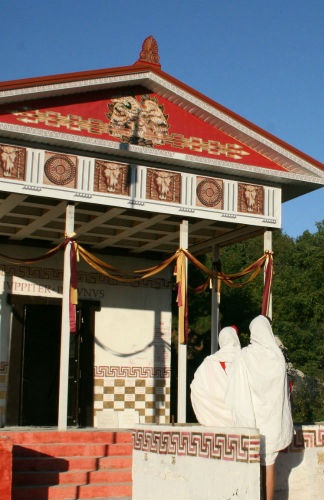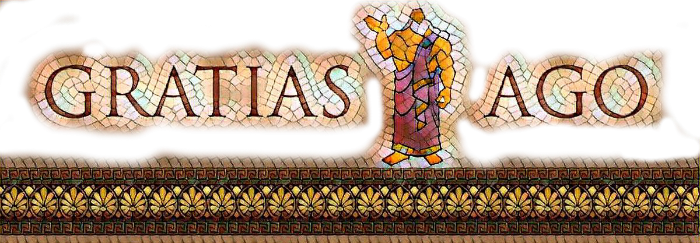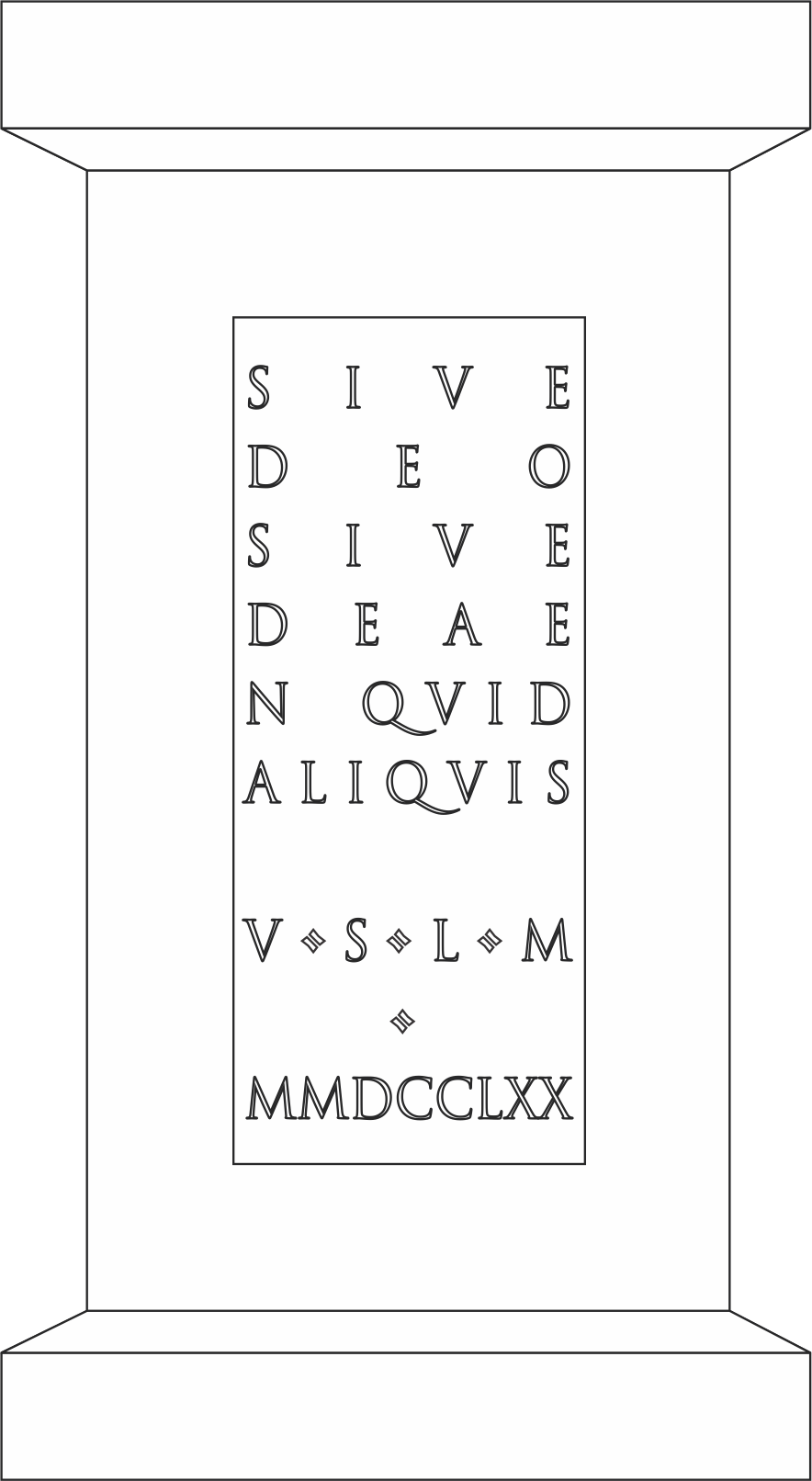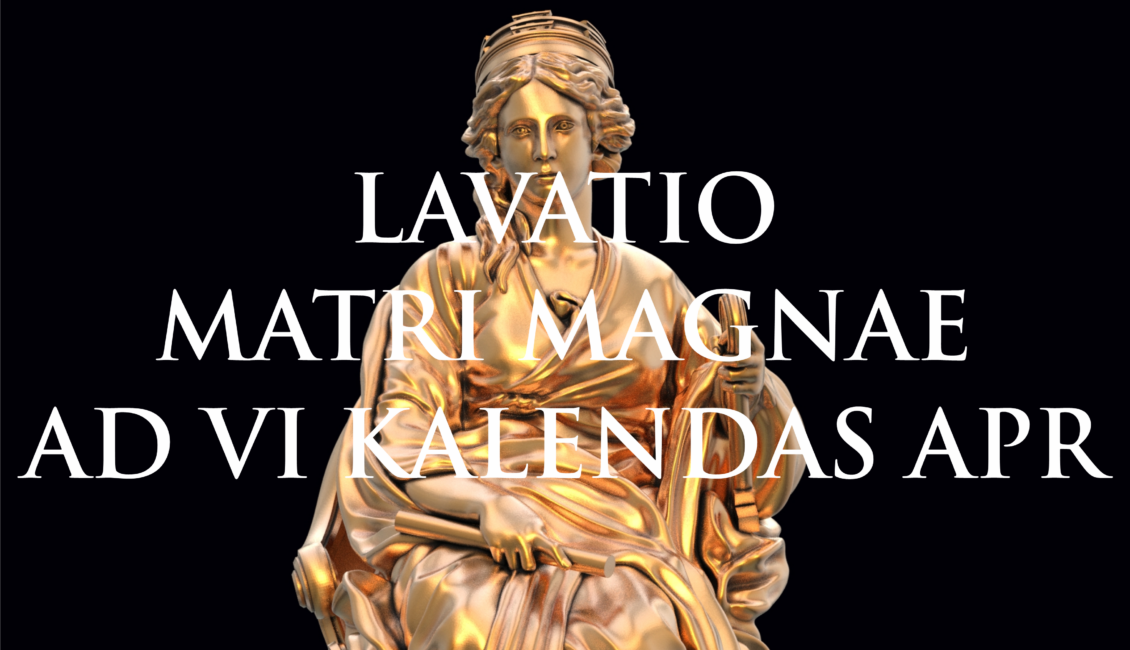
Today it is Dies Comitialis – almost the same as Dies FASTI, but these days are reserved for public gatherings of Romans – comitia. So, if your local community is going to appoint a gathering to discuss certain matters and make decisions – these days are just perfect for that!
LAVATIO MATRI MAGNAE. Washing of the Magna Mater. Statues of the Gods were regularly cleaned, washed, dressed, and perfumed. Magna Mater, Cybele, the Great Mother of the Gods, had according Samuel Ball Platner (“A Topographical Dictionary of Ancient Rome”, London: Oxford University Press, 1929) five temples in Rome. Her main temple was on the Palatine hill. This Temple has been dedicated during the Punic wars on Idus Apr. 563 a.u.c. (10 April 191 b.c.e.) by Praetor M. Junius Brutus IV. From this day on, were held every year, in honour of the Goddess and in front of the temple, the Ludi Megalesia. Magna Mater had become the Sacred Protectress of the City. Lavatio (“Washing”), noted by Ovid and probably an innovation under Augustus, Literary references indicate that the lavatio was “well established” by the Flavian period; when Cybele’s sacred stone was taken in procession from the Palatine temple to the Porta Capena and down the Appian Way to the stream called Almo, a tributary of the Tiber. There the stone and sacred iron implements were bathed “in the Phrygian manner” by a red-robed priest. The quindecimviri attended. The return trip was made by torchlight, with much rejoicing. The ceremony alluded to, but did not reenact, Cybele’s original reception in the city.
